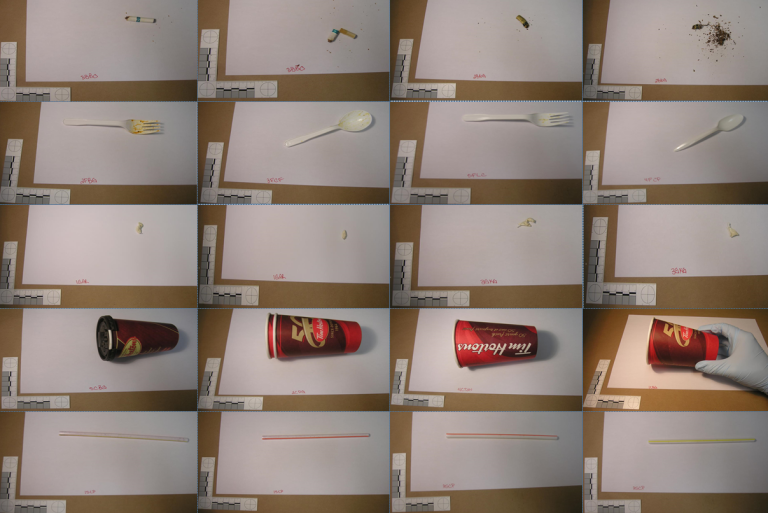“Cast-off DNA” refers to potential DNA-containing items that are voluntarily abandoned in public by a person-of-interest to an investigator. The collection of such items while under surveillance, for the purposes of a DNA analysis, does not require a warrant as it is argued that the act of discarding negates one’s expectation of ownership and therefore privacy. Once a cast-off exhibit has been collected and a DNA profile obtained, the DNA expert can compare that profile to a crime scene sample. If a match is found the investigator may have probable cause for a DNA warrant application in order to collect a known sample from the suspect.
This student project was an attempt to try some new technology, GlobalFiler Express, with these types of samples to determine if a profile can be obtained quickly.
A wide range of “typical” cast-off samples, such as cigarette butts, chewing gum, coffee cups and cutlery, were tested with the GlobalFiler Express kit. The majority of the samples returned usable profiles. Thirty-three of thirty-five exhibits in the study gave at least a partial profile which could be used for comparison purposes to a known reference. This showed that the technology may be suitable for this type of testing. Agencies using these profiles as investigative tools are potentially able to halt expensive and time-consuming surveillance programs quicker than they otherwise could due to the lowering of the potential turnaround time of this technique. Cost savings for police agencies could be significant in the long term, making this an exciting opportunity to explore for future casework.

More details of the student project performed by Kelsea Goodwillie can be found below.
 BCIT Forensic DNA Lab
BCIT Forensic DNA Lab